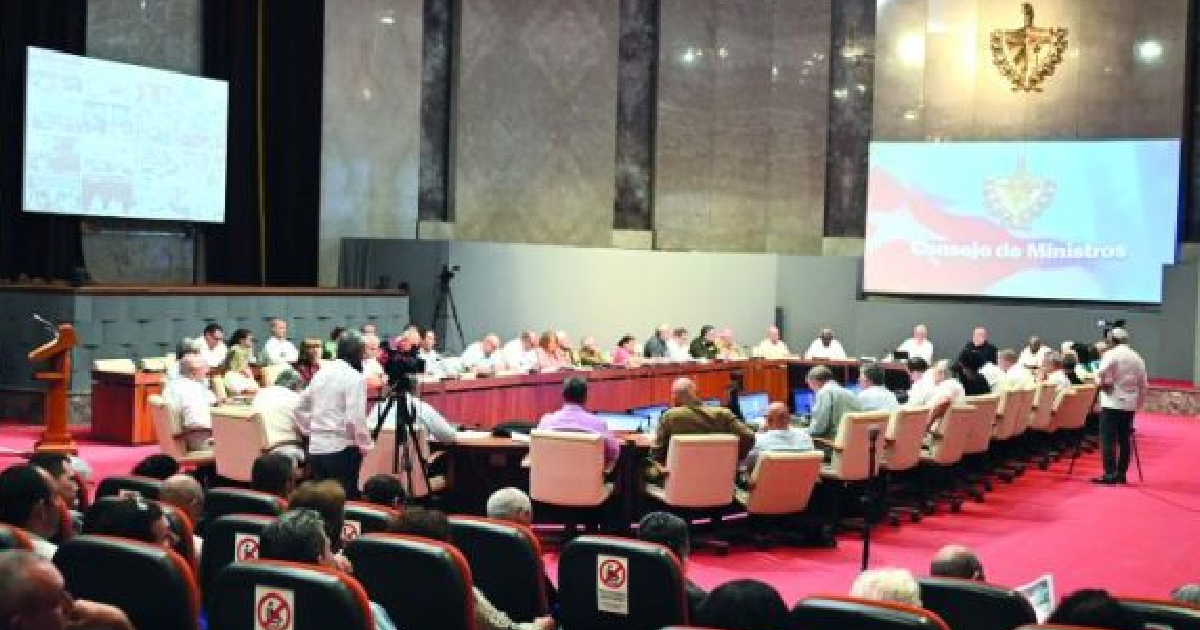In a context rife with scarcity, shortages, public discontent, and no immediate improvement in sight, the Cuban Council of Ministers has announced new measures aimed at "correcting distortions and revitalizing the economy during 2024." This was revealed in their recent meeting, which, according to state media, monthly evaluates the country's situation with a focus on the economy.
Miguel Díaz-Canel Bermúdez, the ruling figure present at the meeting, emphasized the need to "work consciously, with commitment, and with a lot of control" regarding these measures and those already established by the Cuban government, as reported by the official media Granma.
The new measures, vaguely explained in the meeting report, are focused on "adjusting the 2024 Plan and Budget to the conditions of a 'war economy,'" a concept more rooted in belief and the power assigned to the state rather than a concrete stage, noted economist Pedro Monreal.
While the term "war economy" may not be striking, it implies prioritizing resources and efforts in essential and high-impact areas, which could increase efficiency in the use of limited resources. However, this could result in reduced investments in non-priority sectors, affecting their medium and long-term development.
Government Budget Reductions
The government also proposes "reducing budget allocations to decrease the fiscal deficit for 2024, based on unexecuted budget items; defining requirements in the budgeted activity for the use of the approved budget, and centralizing the approval authority." This could impose restrictions on local governments, potentially slowing decision-making and reducing the flexibility of local actors to respond to specific and emerging needs.
Additionally, they intend to "allocate financial resources monthly according to the actual income of the month," a measure that could create uncertainty and liquidity problems for projects and services dependent on regular and predictable allocations.
Another decision is to "calculate the fiscal impact of non-state sector imports; grant tariff benefits, including exemptions, for the import of raw materials and inputs for production, as well as complete the tax system for e-commerce." They also plan to establish "a single, inclusive pricing policy on equal terms for all economic entities, including both the state and non-state sectors." If not properly adjusted, this measure could exacerbate the current supply and demand problem, increasing product shortages.
Further regulations will "limit profits on product purchases and service and input payments made by the state sector to the non-state sector; encourage productive linkages without relinquishing productive capacities; initiate the process of drafting the 2025 Economic Plan and State Budget, based on the approval of the Global Model and Government Directives conceived for that process; and advance the implementation of a plan to address existing banking issues," as they have announced.
One risk of these measures is that they could discourage the non-state sector's participation in transactions with the state sector if perceived as unprofitable. This presents a challenge for the Cuban government, which has repeatedly shown the inefficacy of its policies.
The implementation challenges must be carefully managed to avoid negative impacts on the population and key economic sectors.
According to Deputy Minister of Economy and Planning, Mildrey Granadillo de la Torre, the measures have "an integral character and stem from the complex existing economic situation." She assured that the actions focus on "advancing the country's macroeconomic stabilization, a complex process that requires coordination and alignment among global economic entities," aimed at "improving planning mechanisms, relations between economic actors, attracting financing, eliminating tax evasion, and increasing production."
Economist Pedro Monreal is skeptical of these measures. In a recent thread on X, he criticized the press report from Granma and pointed out that "there is a kind of economic schizophrenia when talking about 'centralizing' budget approvals, a 'single' pricing policy, and more regulations, despite acknowledging problems of bureaucracy and 'inefficient' institutional control."
Monreal described the Council of Ministers as "a governing body mired in worn-out rhetoric, nebulous communication of results and actions, and an economic team seemingly perplexed by the country's macroeconomic destabilization."
Questions About Cuba's New Economic Measures
To provide more insights into the new economic measures announced by the Cuban government, here are some frequently asked questions and their answers.
What are the main objectives of the new economic measures?
The main objectives are to correct economic distortions, reduce the fiscal deficit, and stabilize the macroeconomic environment in Cuba.
How might the "war economy" approach impact Cuba's economic sectors?
The "war economy" approach could increase efficiency in essential areas but might reduce investments in non-priority sectors, affecting their development in the medium and long term.
What risks are associated with these new measures?
The measures could create uncertainty and liquidity problems, discourage non-state sector participation, and impose restrictions on local governments, potentially slowing decision-making and flexibility.
